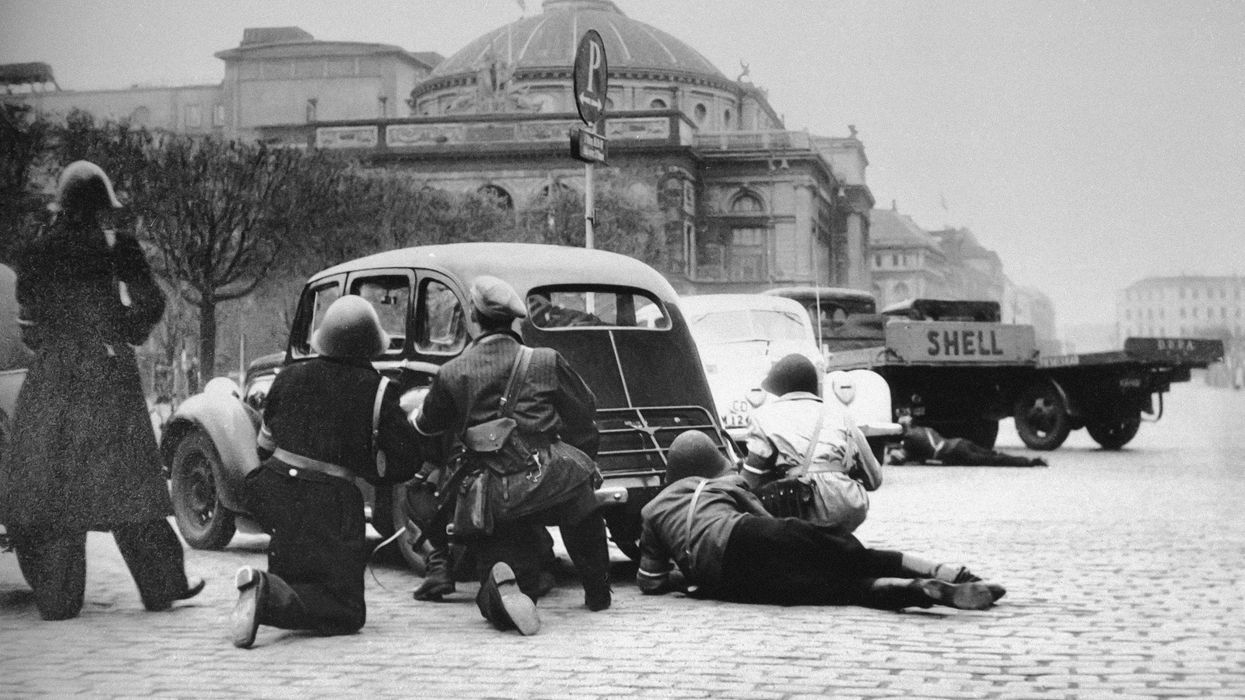How a 1943 gathering of Germans may offer a valuable lesson for today


Fascism doesn't necessarily come about because of a military coup d'etat like the overthrow of socialist Salvador Allende in Chile in 1973. In many cases, far-right extremists are — unlike Chilean dictator Augusto Pinochet — voted into office.
In Germany, Adolf Hitler's rise came about gradually. The 1972 movie "Cabaret" (directed by Bob Fosse and based on the play) depicts Berlin in 1931, before Hitler toppled the Weimar Republic and made Germany a fascist dictatorship. One thing the film brings out is the fact that in 1931, some Germans were sounding the alarm about the advances Hitler was making — while others were going along to get along.
In a guest op-ed/essay published by the New York Times on October 15, journalist Jonathan Freedland looks back on the rise of Adolf Hitler in Nazi Germany during the 1930s and lessons of the German resistance that, he stresses, are still important in 2025.
"As authoritarian rulers gain ground across the democratic world, making inroads not only in Hungary and Turkey, but even in the United States, a question from the 20th Century has resurfaced in the 21st — one that presses on individuals as well as institutions," Freedland explains. "Put simply, who bends the knee to tyranny and who stands up to it? A clue can be found in an extraordinary episode from inside the Third Reich that has lain, almost forgotten, for nearly 80 years."
Freedland recalls that in Nazi Germany back in September 1943, a "loose grouping of 10 or so friends and acquaintances drawn from German high society" met for a tea party. Most of them, according to Freedland, "shared willingness to defy Hitler, in ways large and small" — but they "were unaware that one of them was poised to betray all the rest to the Gestapo."
"That act would lead to arrest and jail and, for several of those present that day, death, whether by the guillotine or the hanging rope," Freedland writes. "Its ramifications would eventually reach the apex of the Nazi state. The core mystery that runs through this story is not just the identity of the betrayer, but also, why people of privilege and rank, who could so easily have kept their heads down, risked everything. Had they fallen in line, their fortunes, careers and country estates likely would have remained intact. They could have survived the war unscathed. But they chose another path."
Freedland laments, however, that "most aristocratic Germans did not rebel against Hitler," but rather, "largely fell in line behind the Nazis."
"But if there is a lesson to be gleaned from the deadly fate of those men and women," Freedland writes, "it might just be that the best safeguard against tyranny is a legion of people who believe in an authority higher than any political program, prince — or president."
Jonathan Freedland's full op-ed/essay for The New York Times is available at this link (subscription required).